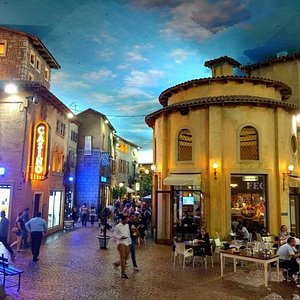Johannesburg North Attractions - The Facts
Johannesburg North Attractions - The Facts
Blog Article
Johannesburg North Attractions - Truths
Table of ContentsThe smart Trick of Johannesburg North Attractions That Nobody is Talking AboutSome Of Johannesburg North AttractionsUnknown Facts About Johannesburg North AttractionsJohannesburg North Attractions Can Be Fun For AnyoneFascination About Johannesburg North AttractionsThings about Johannesburg North AttractionsThe Main Principles Of Johannesburg North Attractions
You should maintain safety and security in mind and vacationers should continue to be sharp at all times when in strange surroundings. Talk to the locals when you are in town to locate out concerning the area you are remaining in. Johannesburg North attractions. When on the road (this does not apply to mall and other safe atmospheres) best basic advice is to try your best to resemble a neighborhood and to stay clear of showing any type of kind of wealth
Facts About Johannesburg North Attractions Revealed
Professor Revil Mason O. J. (Thomson, 1946) explored the Witwatersrand's pre-colonial history. His historical job blew up the 'em pty land' myth, according to which the region was without human habitation prior to the arrival of European inhabitants. In his publications Prehistory of the Transvaal: A Record of Human Task (1962) and Origins of Black Individuals of Johannesburg and the Southern Western Central Transvaal AD 3501880 (1986 ), Professor Mason showed the extent of social and economic advancement in the area before Europeans set foot right here.

The Ultimate Guide To Johannesburg North Attractions
In 1878, David Wardrop discovered gold in quartz veins at Zwartkop, north of Krugersdorp. In 1881, Stephanus Minnaar came throughout gold on the farm Kromdraai, near the Cradle of Humankind.
In March 1886, an outcropping (soon to be called the Key Coral reef) was discovered, quite luckily, on Gerhardus Oosthuizen's farm Langlaagte. Some claim that the Lancastrian coal miner George Walker uncovered this coral reef. An additional itinerant English miner, George Harrison (that had actually formerly operated in Australian mines) gotten a prospecting permit in respect of Langlaagte in Might 1886.
He determined to carry on in a pursuit for greener pastures, and disposed of his Langlaagte claim for the baronial amount of 10. Alas: under lay the wealthiest goldfield ever before discovered. The discovery of this abundant auriferous coral reef provoked a gold thrill that signalled the end of bucolic tranquillity in the southerly Transvaal.
It would certainly, within six years, come to be the biggest town in southern Africa. Within a years, it would make the Z. A. R. up until after that an anarchical and insolvent little state the wealthiest nation in Africa. By the millenium, the Z. A. R. was to surpass Russia, Australia and the USA of America to end up being the globe's leading gold producer, generating more than a quarter of the globe's gold.
Johannesburg North Attractions for Dummies
It was referred to as Ferreira's Camp, named after Colonel Ignatius Ferreira. He was a Boer adventurer upon whom the British authorities had presented the condition of Friend of the Most Differentiated Order of St Michael and published here St George (entitling him to the post-nominal letters C. M. G.) in gratitude for his try these out function in the war that had deposed the Pedi king Sekhukhune in 1879.
Quickly the camp was bursting with tents and wagons as beginners showed up daily from far and wide. By September 1886, some 400 people stayed in Ferreira's Camp, which quickly boasted upraised iron and hardwood buildings. 2 other camps were developed: Meyer's Camp on the ranch Doornfontein, and Paarl Camp. The latter was nicknamed Afrikander Camp; numerous people from the Cape Nest resolved there.

9 Easy Facts About Johannesburg North Attractions Shown
This name acquired money by word of mouth, such that the State Secretary verified the name to the Mining Commissioner on 9 October 1886. Stands in the town were auctioned on 8 December 1886. While some stands were cost 10, others were torn down for as little as sixpence.
Two years later on, these erven were to alter hands for as high as 750 each. The tented camps diminished as a dorp of corrugated iron buildings developed and expanded north of the mines situated along the Main Reef Roadway. Areas such as Jeppe's Community (where working-class immigrants erected their dwellings) and Doornfontein (where the upscale new 'Randlords' began to build their luxurious residences) were quickly contributed to the ever-expanding map of the town.
Johannesburg North Attractions Fundamentals Explained
Apart from the road names, there were no indications of Johannesburg being situated in a Dutch-speaking nation., almost everyone talked English and also the Federal government servants resolved one in English, unless they were very first dealt with in the Taal (or Reduced Dutch)'.
As useful source such, Britain had a rate of interest in making certain optimal problems for gold production on the Witwatersrand, and that the gold was exported to London instead of Berlin an essential rendered all the extra clamant by the Z. A. R - Johannesburg North attractions.'s boosting toenadering with Germany. Mine proprietors got on a clash with Head of state Kruger, whose policy of monopolistic concessions (usually granted to his cronies) prevented mining business from obtaining products of products (particularly dynamite) and labour by themselves, less expensive terms
See This Report on Johannesburg North Attractions
In 1890, the Volksraad had limited the franchise business to white males that had resided in the Z. A. R. for fourteen years or longer, hence invalidating most of the immigrants (who took place to be the significant contributors to the fiscus). Nevertheless, agitation for the ballot was a plain pretense for advertising a different program; a lot of uitlanders regarded themselves as short-lived visitors and had no intent of staying in the Z.
Report this page